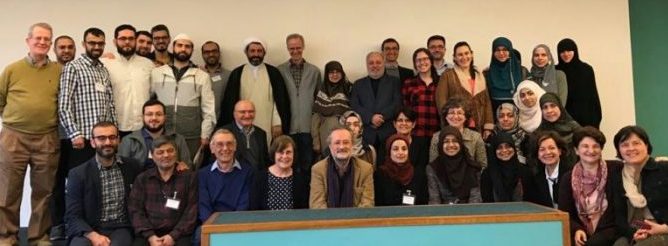
Apr 18, 2018 | Non categorizzato
 It will be discussed on Saturday, April 21, from 16 to 19 pm, within the wider context of a conference promoted by the Focolare Movement. The title of this event is“Together as a sign of hope. Christians and Muslims journeying together in the light of the charism of unity” and it will take place at the Mariapolis Centre in Castel Gandolfo, Rome from the 19 to 22 April. About 600 Christians and Muslims are expected to attend. In a social context, particularly in the western world, marked by fear, prejudice and distrust that build barriers and by ideas that nourish clashes and divisions, witness of a shared commitment between Christians and Muslims, launches a message that goes against the current and sows seeds of hope. These Christians and Muslims unit for peace, solidarity, development and harmony among peoples of different faiths, cultures and traditions. It is possible to live together in harmony, respect, solidarity and peace. It is also possible to work together, share common objectives and cooperate to achieve them, without weakening one’s identity and heritage of values, while exercising a fair and frank confrontation that strengthens mutual understanding and respect, and giving preference to that which unites over that which divides. The driving force of this journey is the charism of unity of Chiara Lubich. On May 18, 1997, in her speech at the Malcolm X Mosque in Harlem, where she made a pact to work for unity and peace together with Imam Wallace Deen Mohammed and the Muslim community present, she said: “Here I have experienced profound fraternity. Its beauty is so remarkable that it can only be God’s work. He has really made us one family for his plans”. While speaking about the underlying principle of this journey of communion, she explained: “The so-called Golden Rule – ‘Do not do to others as you would not have them do to you’ – is common to almost all religions, even if with different versions. This Golden Rule is enough to guarantee our bond of love with each neighbour, and this love would be enough to make humanity become one family”. In the wake of that experience and of initiatives launched in various countries to promote Islamic-Christian dialogue, the coming event at Castelgandolfo aims at being a step foward in the journey towards universal brotherhood and a sign of hope for humanity. “Religious education is attention to peace” says Adnane Mokrani, a professor at the Pontifical Gregorian University and at the Pontifical Institute for Arabic and Islamic Studies (PISAI) and president of Cipax, who will be present at the conference. “With such an approach, there would be no divisions, but there would be solidarity, collaboration, unity among people of different faiths, called to work together for the common good of humanity and to serve everyone without any distinction”. Maria Voce, President of the Focolare Movement, Cardinal Jean-Louis Pierre Tauran, President of the Pontifical Council for Interreligious Dialogue, Abdullah el Radwan, Head of the Islamic Cultural Centre of Italy, Izzedin Elzir, Imam of Florence and president of UCOII, Piero Coda, Dean of the Sophia University Institute and Mohammad Shomali, director of the London Islamic Centre will be among the speakers during this open gathering. Numerous experiences of dialogue and fruitful collaboration will be shared as fragments of unity to be multiplied.
It will be discussed on Saturday, April 21, from 16 to 19 pm, within the wider context of a conference promoted by the Focolare Movement. The title of this event is“Together as a sign of hope. Christians and Muslims journeying together in the light of the charism of unity” and it will take place at the Mariapolis Centre in Castel Gandolfo, Rome from the 19 to 22 April. About 600 Christians and Muslims are expected to attend. In a social context, particularly in the western world, marked by fear, prejudice and distrust that build barriers and by ideas that nourish clashes and divisions, witness of a shared commitment between Christians and Muslims, launches a message that goes against the current and sows seeds of hope. These Christians and Muslims unit for peace, solidarity, development and harmony among peoples of different faiths, cultures and traditions. It is possible to live together in harmony, respect, solidarity and peace. It is also possible to work together, share common objectives and cooperate to achieve them, without weakening one’s identity and heritage of values, while exercising a fair and frank confrontation that strengthens mutual understanding and respect, and giving preference to that which unites over that which divides. The driving force of this journey is the charism of unity of Chiara Lubich. On May 18, 1997, in her speech at the Malcolm X Mosque in Harlem, where she made a pact to work for unity and peace together with Imam Wallace Deen Mohammed and the Muslim community present, she said: “Here I have experienced profound fraternity. Its beauty is so remarkable that it can only be God’s work. He has really made us one family for his plans”. While speaking about the underlying principle of this journey of communion, she explained: “The so-called Golden Rule – ‘Do not do to others as you would not have them do to you’ – is common to almost all religions, even if with different versions. This Golden Rule is enough to guarantee our bond of love with each neighbour, and this love would be enough to make humanity become one family”. In the wake of that experience and of initiatives launched in various countries to promote Islamic-Christian dialogue, the coming event at Castelgandolfo aims at being a step foward in the journey towards universal brotherhood and a sign of hope for humanity. “Religious education is attention to peace” says Adnane Mokrani, a professor at the Pontifical Gregorian University and at the Pontifical Institute for Arabic and Islamic Studies (PISAI) and president of Cipax, who will be present at the conference. “With such an approach, there would be no divisions, but there would be solidarity, collaboration, unity among people of different faiths, called to work together for the common good of humanity and to serve everyone without any distinction”. Maria Voce, President of the Focolare Movement, Cardinal Jean-Louis Pierre Tauran, President of the Pontifical Council for Interreligious Dialogue, Abdullah el Radwan, Head of the Islamic Cultural Centre of Italy, Izzedin Elzir, Imam of Florence and president of UCOII, Piero Coda, Dean of the Sophia University Institute and Mohammad Shomali, director of the London Islamic Centre will be among the speakers during this open gathering. Numerous experiences of dialogue and fruitful collaboration will be shared as fragments of unity to be multiplied.
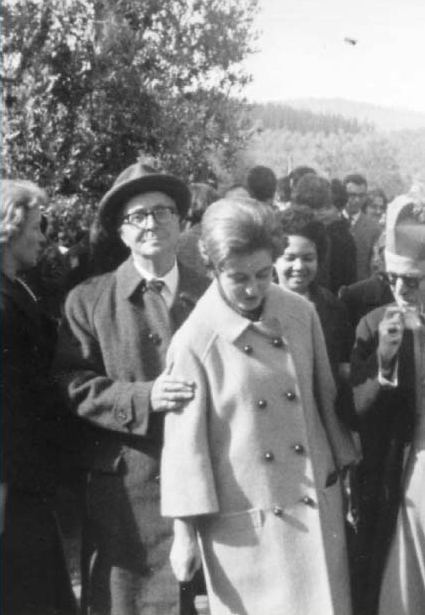
Apr 18, 2018 | Non categorizzato
 20 April 1979 – Like every Christian, my love goes to the Lord in every moment and I contemplate Him with respectful fear. At times, however, I take chances since it never represses my calling as a jokester. And this morning at Mass an invocation suddenly popped into my mind: “You are the Omnipotent.” And immediately after my weak poetic side looked for a rhyme: “I am ‘nopotent’.” Then, I thought that if I’m nothing, by receiving God into myself, I take on Divine value. 5 November 1979 – I’m often taken by thoughts of death, but they don’t come in darkness and sorrow. Death comes as a light that shows our greatness and the beauty of life, and of its Author who could be anything but a most benevolent father. Looking at certain periods in life was hard, crude, desolate: the misery, the mourning, the wars, the betrayals, the meaninglessness… But contemplated as a whole, life appears a prodigy – a demonstration – of God’s fatherliness: 86 years of life, the wounds of battle that kept the war ever present, the political battles, the financial problems, the misunderstandings both inflicted and undergone, the physical weakness, etc. But seen as a whole, it appears a defeat of death to me, a joyful and necessary operation in which I was given to do more good than bad and have feelings of extraordinary successes, friendships, journeys, mystical elevations, lessons of wisdom and faith. I never stop thanking the sharer of so many good thing that were, given to me so freely. So even amid the shadows and the sorrows, life was beautiful for me, a gift worthy of its Creator. And my daily observations, reasonings and verifying has proven to me the truth of the religious faith that has always enlightened me and made me want to live. Life is truly beautiful, and its beauty shows the absurdity of politics and the personal behaviours of those who have worked to make it ugly (war, terrorism, exploitation, hedonism, greed, lust) and all the deformations and lacerations intended by stupidity the intelligence of the world’s Enemy. Source: Igino Giordani, Diario di fuoco, Città Nuova, Rome, 2005 (1980), pp.238-240. Brochure: On the anniversary of his death, the Centre named after him has published a brochure about the life of Igino Giordani and his spiritual journey. For information: info@iginogiordani.info Giordani on Facebook
20 April 1979 – Like every Christian, my love goes to the Lord in every moment and I contemplate Him with respectful fear. At times, however, I take chances since it never represses my calling as a jokester. And this morning at Mass an invocation suddenly popped into my mind: “You are the Omnipotent.” And immediately after my weak poetic side looked for a rhyme: “I am ‘nopotent’.” Then, I thought that if I’m nothing, by receiving God into myself, I take on Divine value. 5 November 1979 – I’m often taken by thoughts of death, but they don’t come in darkness and sorrow. Death comes as a light that shows our greatness and the beauty of life, and of its Author who could be anything but a most benevolent father. Looking at certain periods in life was hard, crude, desolate: the misery, the mourning, the wars, the betrayals, the meaninglessness… But contemplated as a whole, life appears a prodigy – a demonstration – of God’s fatherliness: 86 years of life, the wounds of battle that kept the war ever present, the political battles, the financial problems, the misunderstandings both inflicted and undergone, the physical weakness, etc. But seen as a whole, it appears a defeat of death to me, a joyful and necessary operation in which I was given to do more good than bad and have feelings of extraordinary successes, friendships, journeys, mystical elevations, lessons of wisdom and faith. I never stop thanking the sharer of so many good thing that were, given to me so freely. So even amid the shadows and the sorrows, life was beautiful for me, a gift worthy of its Creator. And my daily observations, reasonings and verifying has proven to me the truth of the religious faith that has always enlightened me and made me want to live. Life is truly beautiful, and its beauty shows the absurdity of politics and the personal behaviours of those who have worked to make it ugly (war, terrorism, exploitation, hedonism, greed, lust) and all the deformations and lacerations intended by stupidity the intelligence of the world’s Enemy. Source: Igino Giordani, Diario di fuoco, Città Nuova, Rome, 2005 (1980), pp.238-240. Brochure: On the anniversary of his death, the Centre named after him has published a brochure about the life of Igino Giordani and his spiritual journey. For information: info@iginogiordani.info Giordani on Facebook
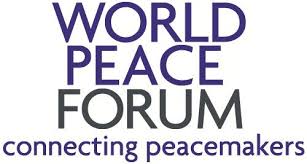
Apr 17, 2018 | Focolare Worldwide
 “Leadership for Peace” is the theme of the 12th edition of the World Peace Forum from 19 to 22 April. The International Forum links and gathers hundreds of young activists and promoters in the respective countries and actions for peace. After the recent editions in Cairo (Egypt), Florianapolis (Brazil) and Madaba (Jordan), this year Toronto (Canada) will host the event with an extensive programme of debates, studies and analyses for development, exchange of good practices, conflict resolution models, and identification of common values and strategies to create a chain of leaders motivated in building world peace. Forum 2018 particularly addresses directors, public and private administrators, teachers, educators, NGO presidents, religious leaders and government agencies, activists, and members of movements that operate in favour of dialogue, peace and disarmament. For information: www.worldpeaceforum.org
“Leadership for Peace” is the theme of the 12th edition of the World Peace Forum from 19 to 22 April. The International Forum links and gathers hundreds of young activists and promoters in the respective countries and actions for peace. After the recent editions in Cairo (Egypt), Florianapolis (Brazil) and Madaba (Jordan), this year Toronto (Canada) will host the event with an extensive programme of debates, studies and analyses for development, exchange of good practices, conflict resolution models, and identification of common values and strategies to create a chain of leaders motivated in building world peace. Forum 2018 particularly addresses directors, public and private administrators, teachers, educators, NGO presidents, religious leaders and government agencies, activists, and members of movements that operate in favour of dialogue, peace and disarmament. For information: www.worldpeaceforum.org

Apr 17, 2018 | Non categorizzato
“Walking together, serving justice and peace.” With this goal, the World Council of Churches, the worldwide organization focused on dialogue between the different Christian denominations, has reached the 70th anniversary of its founding in 1948. This year there will be a number of opportunities to look at the results of the work that has been carried out for Christian unity. At the same time, it will be an opportunity to renew the commitment toward the future challenge of full communion, to best respond to God’s calling for the unity of the human family, justice and world peace. Among the festivities, the Focolare Movement has organized an event on April 18 in Geneva, Switzerland in order to commemorate the rich collaboration between Chiara Lubich and the Focolare Movement with the World Council of Churches. The program includes a presentation by Pastor Olav Fykse Tveit, the secretary general of the council, and Jesús Morán, the co-president of the Focolare. For streaming see link
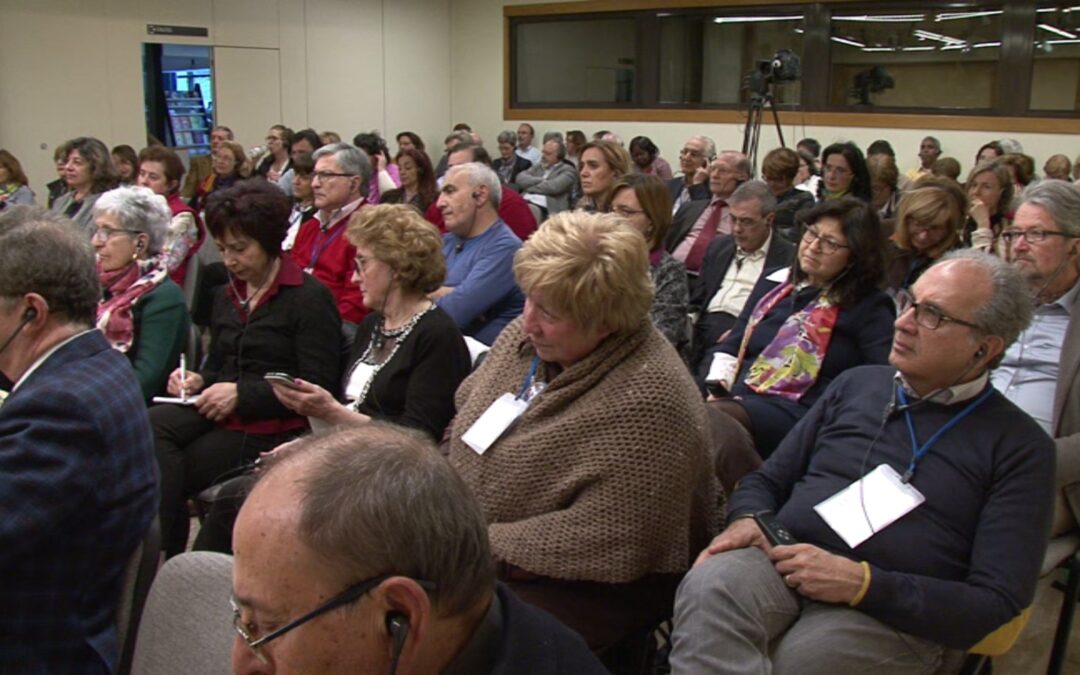
Apr 17, 2018 | Non categorizzato
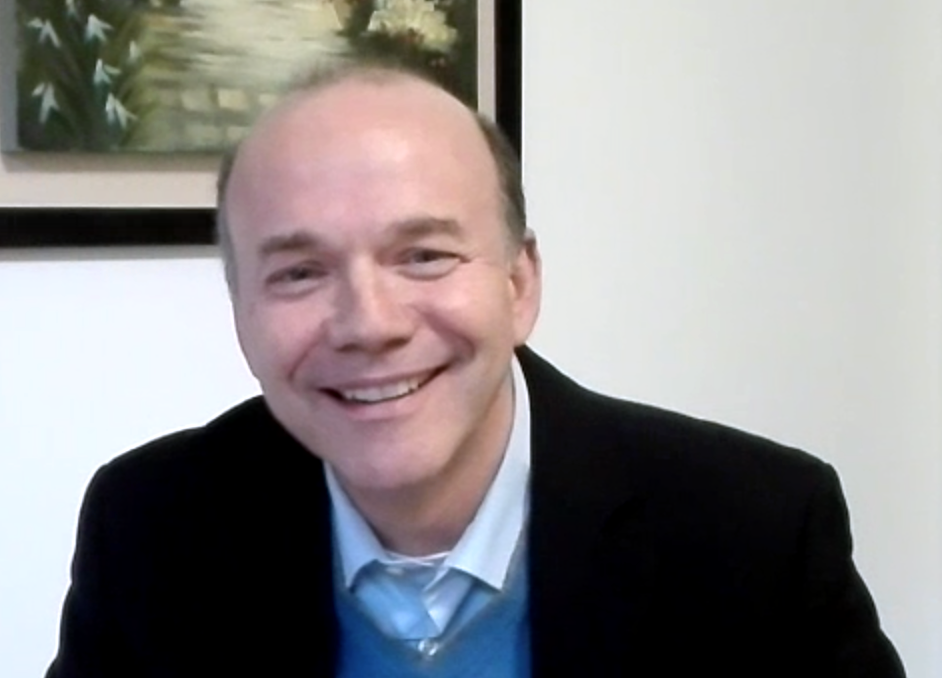
Marc St Hilaire. Focolare Movement
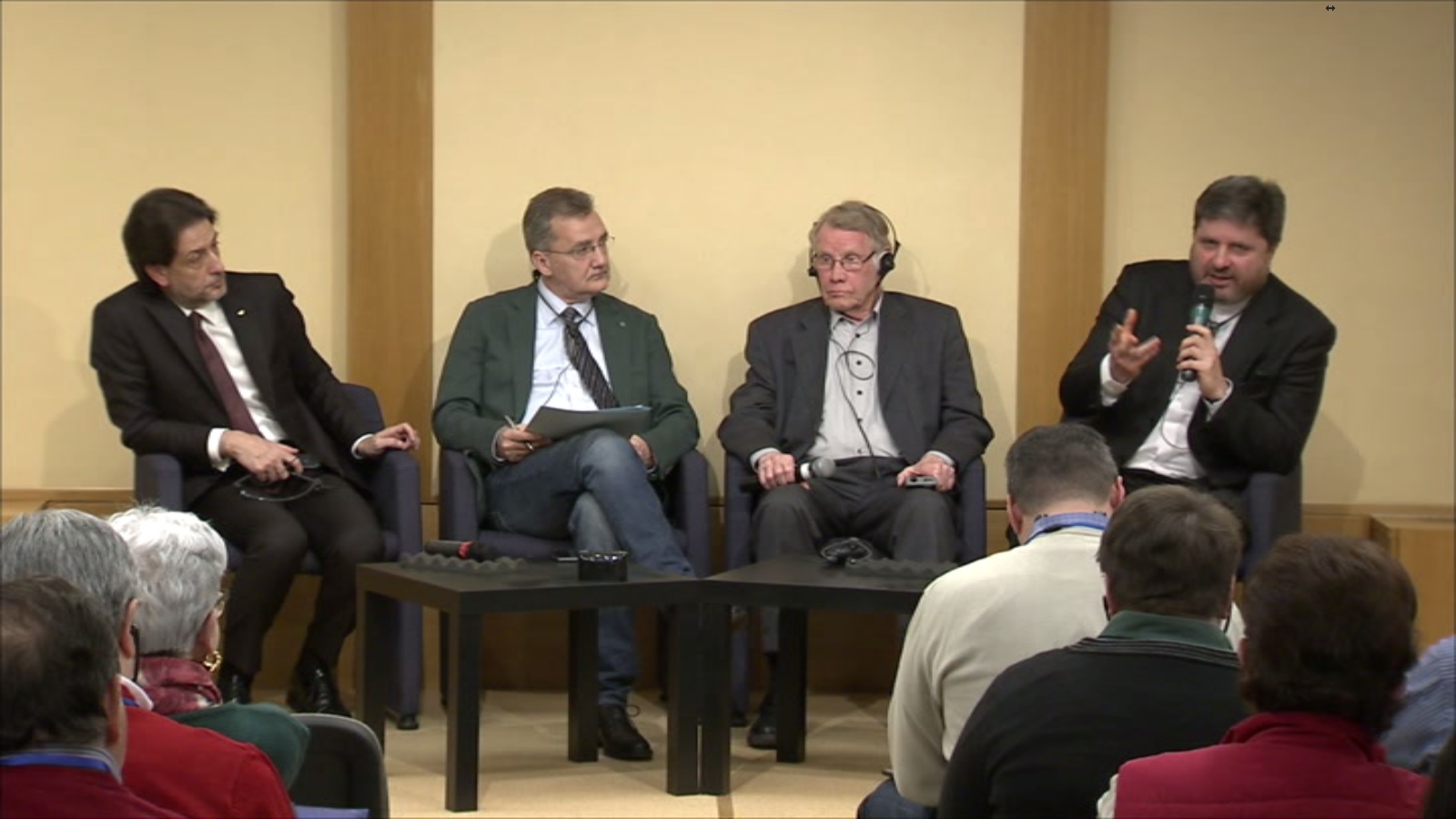
Salvatore Martinez, Aurelio Molè, P. Marmann, D. Angelo Romano
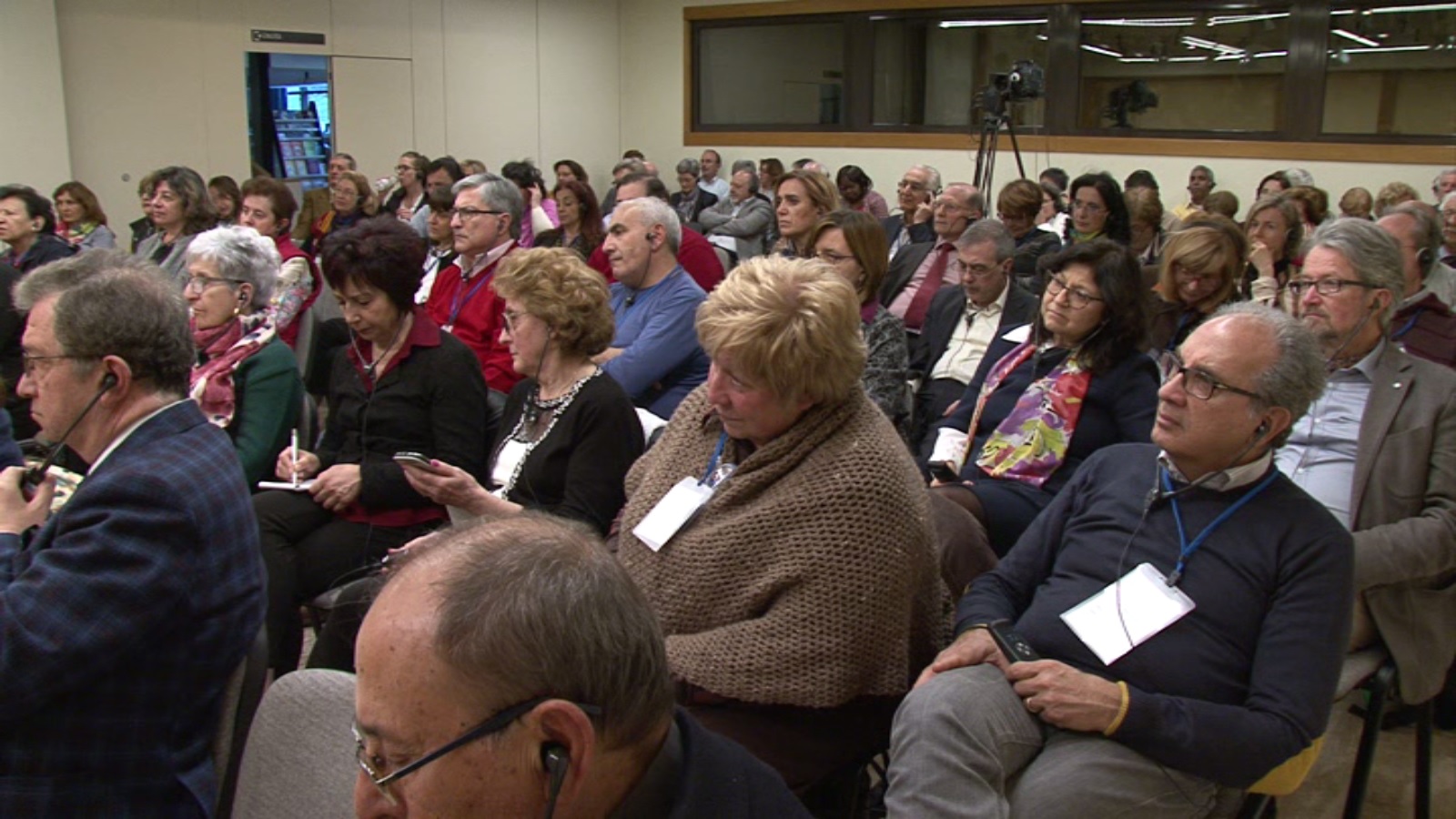 Fr Angelo Romano, Rector of the Basilica of St Bartholomew in Rome, for the Community of Sant’Egidio and in charge of dialogue, “There are sectors in which the path of communion has to grow: as Christians we cannot refuse to question ourselves about the phenomenon of migration and take steps together. Another topic to examine more deeply are the conflicts, which generate poverty and suffering and send a message that is contrary to the Gospel, which says that those who are different can never live together; whereas, we believe that the Gospel is a leaven of unity and peace, and Christians are called to provide a new perspective.” The work of the movements is an incarnation of the Gospel: “We’re the answer,” says Martinez, “of that dichotomy that many would like to put between doctrine and mercy, because the theology of the spirit is done with the life.” And proposing a Church that is poor and missionary is not in antithesis with the doctrine, but part of it: “It’s that dialogue with the world and modernity that the Second Vatican Council prophesied,” says Martinez, “which Paul VI was the first to attempt and all the popes to continue. It’s this original synthesis that the Pope asks us to give witness to: a doctrine that one incarnates in the history.” In this prospective, twenty years from 1998, the ecclesial movements appear more and more to be “the Providential answer to the needs of our time”. It is an answer that implies a constant effort towards unity, to bringing the face of Christ to the human peripheries.
Fr Angelo Romano, Rector of the Basilica of St Bartholomew in Rome, for the Community of Sant’Egidio and in charge of dialogue, “There are sectors in which the path of communion has to grow: as Christians we cannot refuse to question ourselves about the phenomenon of migration and take steps together. Another topic to examine more deeply are the conflicts, which generate poverty and suffering and send a message that is contrary to the Gospel, which says that those who are different can never live together; whereas, we believe that the Gospel is a leaven of unity and peace, and Christians are called to provide a new perspective.” The work of the movements is an incarnation of the Gospel: “We’re the answer,” says Martinez, “of that dichotomy that many would like to put between doctrine and mercy, because the theology of the spirit is done with the life.” And proposing a Church that is poor and missionary is not in antithesis with the doctrine, but part of it: “It’s that dialogue with the world and modernity that the Second Vatican Council prophesied,” says Martinez, “which Paul VI was the first to attempt and all the popes to continue. It’s this original synthesis that the Pope asks us to give witness to: a doctrine that one incarnates in the history.” In this prospective, twenty years from 1998, the ecclesial movements appear more and more to be “the Providential answer to the needs of our time”. It is an answer that implies a constant effort towards unity, to bringing the face of Christ to the human peripheries.
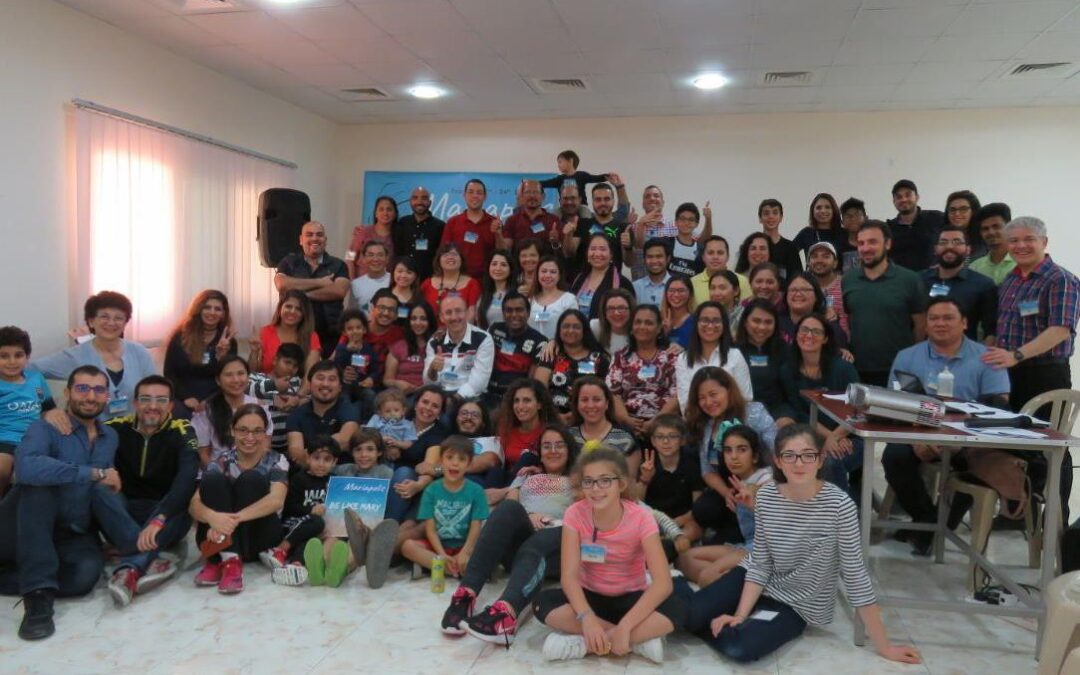
Apr 16, 2018 | Focolare Worldwide
The Burj Khalifa is currently the world’s tallest building, its 160 floors rising to a dizzying 830 metres. At ground level an immense choreographed fountain is illuminated by laser beams bouncing through water jets to a constantly changing musical accompaniment. Although its “world-highest” title is under threat from the Kingdom Tower of Gedda (200 floors) and other skyscrapers rising up in various countries, the city of Dubai is synonymous with its ‘At The Top’ observation deck, offering breath-taking birds-eye views of stunning ultramodern constructions. In recent years, the so-called ‘city of dreams’ has seen one of the highest immigration rates in the world, attracting people from many different countries looking for work. This has produced a distinctively cosmopolitan environment, one not without difficulties, particularly for its foreign workers. In this high-rise ‘concrete jungle’ dwells a small community of the Focolare Movement. Many left their own countries for Dubai – like countless others – hoping to find better financial opportunities for their families. For three weeks in February this community enthusiastically welcomed Romè from the Philippines, Fadia and Susanne from Jordan and Murad from Syria, later joined by Alessandro from Italy for part of the time. Together they formed a ‘temporary focolare’ in this unique location. 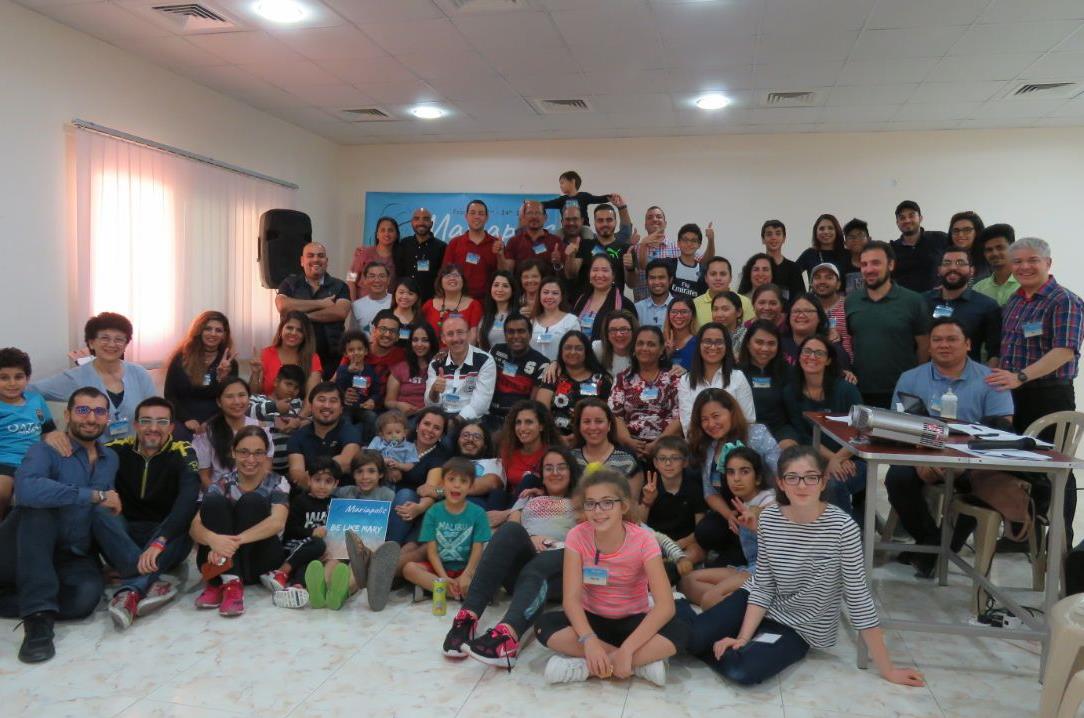 The visitors recall: “We were welcomed at the airport by a group of radiant faces. Each one of us was presented with a beautiful flower! Instantly we were made to feel at home. Our first morning in Dubai dawned with an email greeting from Focolare President, Maria Voce: ‘May Jesus be always present among you, and may He be the most beautiful gift for those you will meet!’ These words guided our steps as we entered into the heart of this community. On tip-toe we contacted one person after another, setting up appointments in their homes, in churches, restaurants, shopping centres and even in metro stations. Wherever we met, people brought items – providence – to share with others. Every moment of the day, and well into the night hours as well, provided opportunities to build a ‘shelter’ for Jesus, for Jesus among us. And what joy every time!” The visitors joined an international and culturally diverse group of Focolare animators to prepare a 2-day Mariapolis. “Our presence in Dubai was in order to serve. But each one of the 70 participants at the Mariapolis, from eleven different nationalities, gave their own active contribution. Chiara Lubich’s last wish ‘always be a family’ was evident there.” The visitors continue: “Talking with several Dubai residents, we became aware of how many worries they may have – discrimination, the fear of losing a job, the high cost of living combined with disproportionately low salaries, no permanent residence, and often no clear future. However, beneath all this, lies a ‘treasure’ hidden in each one’s heart: God, whom they have chosen as their ideal in life.” In conclusion, “We saw how it’s the life of unity lived as part of a community which helps each one withstand the daily challenges.” This – and not height in metres – is what characterizes their distinctive race to The Top. Chiara Favotti
The visitors recall: “We were welcomed at the airport by a group of radiant faces. Each one of us was presented with a beautiful flower! Instantly we were made to feel at home. Our first morning in Dubai dawned with an email greeting from Focolare President, Maria Voce: ‘May Jesus be always present among you, and may He be the most beautiful gift for those you will meet!’ These words guided our steps as we entered into the heart of this community. On tip-toe we contacted one person after another, setting up appointments in their homes, in churches, restaurants, shopping centres and even in metro stations. Wherever we met, people brought items – providence – to share with others. Every moment of the day, and well into the night hours as well, provided opportunities to build a ‘shelter’ for Jesus, for Jesus among us. And what joy every time!” The visitors joined an international and culturally diverse group of Focolare animators to prepare a 2-day Mariapolis. “Our presence in Dubai was in order to serve. But each one of the 70 participants at the Mariapolis, from eleven different nationalities, gave their own active contribution. Chiara Lubich’s last wish ‘always be a family’ was evident there.” The visitors continue: “Talking with several Dubai residents, we became aware of how many worries they may have – discrimination, the fear of losing a job, the high cost of living combined with disproportionately low salaries, no permanent residence, and often no clear future. However, beneath all this, lies a ‘treasure’ hidden in each one’s heart: God, whom they have chosen as their ideal in life.” In conclusion, “We saw how it’s the life of unity lived as part of a community which helps each one withstand the daily challenges.” This – and not height in metres – is what characterizes their distinctive race to The Top. Chiara Favotti
Apr 15, 2018 | Focolare Worldwide
The military intervention in Syria on the night of Friday 13th April has become the focus of international concern. After the heartfelt appeal of the Holy Father, Maria Voce, President of the Focolare, expressed, on behalf of the members of the Movement all over the world, her closeness, solidarity and prayer for the Syrian people who have been suffering immensely for seven years now. “Since we are continually in contact with our communities in Syria,” Maria Voce said, “we cannot fail to make our own their great suffering on perceiving themselves as victims of a proxy war, caused and carried out by outside interests.” “The Movement,” the President stressed, “appeals to political leaders all over the world to return to a profound and truthful dialogue, guided by the sincere search for a peaceful solution, for the good of the Syrian people and all peoples in the Middle East.”
Rocca di Papa (Italy), 15th April 2018
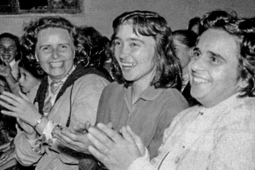
Apr 13, 2018 | Non categorizzato
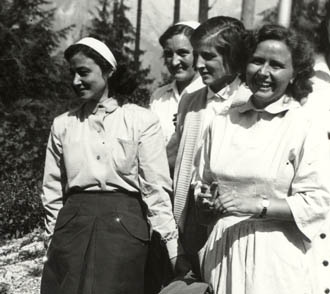 “We’ll never be able to quantify the help that we receive from our brothers and sisters. How much courage their faith inspires in us, how much warmth their love, how much their example draws us!” Chiara Lubich (1920-2008), who wrote these words, was known as someone who drew after her hundreds and thousands of people and constructed relationships with Buddhists, Muslims. She is still being followed by people with no religious affiliation and breatheing new life into politics and economy. The friendship with the first companions of Silvia Lubich whom they knew simply as “Chiara” or Clare, played no small role. It all began with a choice of God and her consecration to Him in 1943, Trent, Italy. However, quite soon it was no longer a single “I”, but a collective subject that began to move, to act, to pray and to love: Chiara and her first companions could have ended becoming anyone, but they became beacons of light on all five continents. This story has many incredible elements, but yet it’s simple. You understand it if you open and read in chapter 13 of John’s Gospel: “I give you a new commandment, that you love one another. As I have loved you, so must you love one another” (13:34). This is a commandment that can only be lived out in the company of others. When Chiara and her companions read this Gospel passage in a bomb shelter, they looked at one another very intensely as they thought about the commitment it would be. They didn’t hesitate, but said to each other: “I’m ready to love you to the point of giving my life for you.” Chiara would later consider this the cornerstone on which the entire Focolare Movement would rest. It’s certainly not something unheard of in the history of the Church, but there might be one thing new about it. Chiara immediately conveyed to her companions whatever she was living and all that the Holy Spirit was inspiring in her. The bond among them was stronger than cement, and I would like to illustrate the qulaity of their relationship that valued and freed potentials, edifying a work that was of God.
“We’ll never be able to quantify the help that we receive from our brothers and sisters. How much courage their faith inspires in us, how much warmth their love, how much their example draws us!” Chiara Lubich (1920-2008), who wrote these words, was known as someone who drew after her hundreds and thousands of people and constructed relationships with Buddhists, Muslims. She is still being followed by people with no religious affiliation and breatheing new life into politics and economy. The friendship with the first companions of Silvia Lubich whom they knew simply as “Chiara” or Clare, played no small role. It all began with a choice of God and her consecration to Him in 1943, Trent, Italy. However, quite soon it was no longer a single “I”, but a collective subject that began to move, to act, to pray and to love: Chiara and her first companions could have ended becoming anyone, but they became beacons of light on all five continents. This story has many incredible elements, but yet it’s simple. You understand it if you open and read in chapter 13 of John’s Gospel: “I give you a new commandment, that you love one another. As I have loved you, so must you love one another” (13:34). This is a commandment that can only be lived out in the company of others. When Chiara and her companions read this Gospel passage in a bomb shelter, they looked at one another very intensely as they thought about the commitment it would be. They didn’t hesitate, but said to each other: “I’m ready to love you to the point of giving my life for you.” Chiara would later consider this the cornerstone on which the entire Focolare Movement would rest. It’s certainly not something unheard of in the history of the Church, but there might be one thing new about it. Chiara immediately conveyed to her companions whatever she was living and all that the Holy Spirit was inspiring in her. The bond among them was stronger than cement, and I would like to illustrate the qulaity of their relationship that valued and freed potentials, edifying a work that was of God. 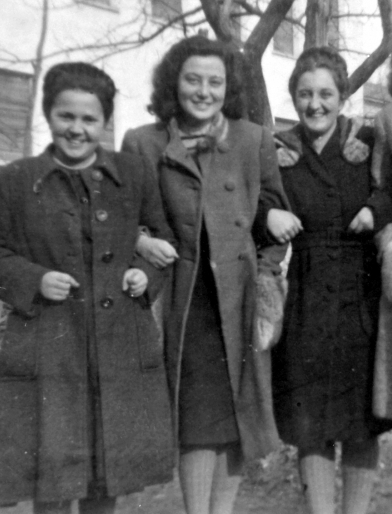 Ten years went by and it was 1954. Chiara was living with Giosi, Graziella, Natalia, Aletta, Marilen, Bruna and Eli. One day, as Chiara paused to look at them, she recalled the sentence from the book of Proverbs: “Wisdom has built her a house and set up her seven columns” (Proverbs 9:1). She was looking at the seven young women in front of her, each with her own talent, all of them united and rooted in God. These were Wisdom’s seven columns, the seven colours of the spectrum that emerge from the one light of Love. Seven interdependent aspects of love, each flowing from and into the other. Chiara entrusted Giosi with the communion of goods and the paychecks, not only the care of the poor: the red of love. To Graziella she entrusted “witness and spreading,” the orange. Natalia had been her first companion: she personified the heart of this ideal, the cry of Jesus Forsaken of love. She would carry thi secret beyond the Iron Curtain. She was the spirituality and prayer life, the yellow of the spectrum. Aletta would be remembered as the one who encouraged the members to be mindful of their health, and to form a community united in love. Chiara entrusted her with the green, Creation and physical life. To Marilen, who lived for fifteen years in the midst of a Cameroon forest, Chiara entrusted the blue: harmony and the home. Bruna was a bit of an intellectual and Chiara saw her as the one who could develop the aspect of studies: the indigo. Eli was always at Chiara’s side and helped to make sure that all the members around the world were living as one. She was entrusted with the aspect of unity and the means of communication, the violet. Some other of her first companions would also have special tasks: Dori, Ginettta, Gis, Valeria, Lia, Silvana and Palmira.
Ten years went by and it was 1954. Chiara was living with Giosi, Graziella, Natalia, Aletta, Marilen, Bruna and Eli. One day, as Chiara paused to look at them, she recalled the sentence from the book of Proverbs: “Wisdom has built her a house and set up her seven columns” (Proverbs 9:1). She was looking at the seven young women in front of her, each with her own talent, all of them united and rooted in God. These were Wisdom’s seven columns, the seven colours of the spectrum that emerge from the one light of Love. Seven interdependent aspects of love, each flowing from and into the other. Chiara entrusted Giosi with the communion of goods and the paychecks, not only the care of the poor: the red of love. To Graziella she entrusted “witness and spreading,” the orange. Natalia had been her first companion: she personified the heart of this ideal, the cry of Jesus Forsaken of love. She would carry thi secret beyond the Iron Curtain. She was the spirituality and prayer life, the yellow of the spectrum. Aletta would be remembered as the one who encouraged the members to be mindful of their health, and to form a community united in love. Chiara entrusted her with the green, Creation and physical life. To Marilen, who lived for fifteen years in the midst of a Cameroon forest, Chiara entrusted the blue: harmony and the home. Bruna was a bit of an intellectual and Chiara saw her as the one who could develop the aspect of studies: the indigo. Eli was always at Chiara’s side and helped to make sure that all the members around the world were living as one. She was entrusted with the aspect of unity and the means of communication, the violet. Some other of her first companions would also have special tasks: Dori, Ginettta, Gis, Valeria, Lia, Silvana and Palmira.

1959: Lia, Marilen, Bruna
Apr 13, 2018 | Focolare Worldwide
Syria is a martyred nation due to its civil war and constant tensions. Many people have lost their job and forced to spend all their savings in order to survive and pay for medical assistance. Doctors, teachers and other trained personnel have emigrated abroad. Those who have remained have most likely lost their homes and forced into already overcrowded neighbourhoods. The areas that are more in urgent need of help in view of future reconstruction are those dealing with financial support services, education and health care. Program activities: 1. Education and Training support in Homs and Damascus: After-school programs, tutoring, morning tea and supply of teaching materials for 220 students; 2. EHIS School for the Deaf in Aleppo: Lessons in the classroom and extra-curricular activities for 75 children; 3. Professional course in Aleppo: Traditional Syrian crafts; 4. Social and health care in Homs and Kafarbo: Access to medical care for cancer patients (chemotherapy and other treatments), financial assistance for surgical procedures, support for patients suffering from kidney failure, financial support for other medical services (radiology, blood tests etc) and counselling; 5. Family income support in Kafarbo, Homs, Aleppo and Damascus: Monthly financial subsidies for food, rent, home repairs, medical assistance. The carrying out of the activities guarantees employment for about 70 people, including teachers, social workers, trainers and assistants and involves about 50 volunteers. Places Kafarbo – Homs – Aleppo – Damascus Beneficiaries 200 families for income support 114 men and women for medical assistance 295 young people for assistance with education and training Costs of the program Total cost: € 293.138,33 Total contributions required by AMU: € 241.586,20 To support the program, please send donations to: Azione per un Mondo Unito ONLUS (AMU) Bank: Banca Popolare Etica IBAN: IT58 S050 1803 2000 0001 1204 344 SWIFT/BIC code: CCRTIT2T Azione per Famiglie Nuove ONLUS (AFN) Bank: Banca Prossima IBAN:IT55 K033 5901 6001 0000 0001 060 SWIFT/BIC code: BCITITMX Description: Emergenza Syria Program Donations made out to Emergency Syria on either bank account will be administered jointly by AMU & AFN
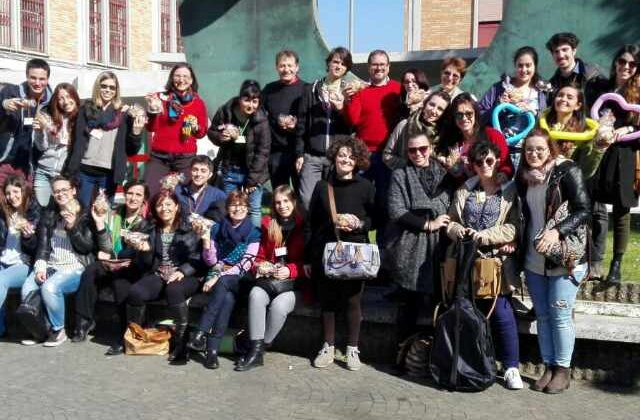
Apr 12, 2018 | Focolare Worldwide
 “For nearly three years we Young People For A United World, here in Rome, have been working with the prison adminstration and the G9 Committee, a group of eight prisoners from an un-named department of the prison of Rebibbia, who, although they don’t have children of their own, have been engaged in promoting opportunities for other prisoners to meet with their families. Raffaele Natalucci and another twenty-nine young people from Rome share their story. “Three times a year we set up stands where parents and children can spend some time together, playing and colouring with their little ones. During the organized events in the grassy areas, the internal courtyard of the prison, nearly three-hundred people are able to gather, which include inmates and their families, and numerous volunteers from the local area. During one of those events a detainee shared his experience with us: “Being deprived of your freedom, estranges you from reality. Staying in a cell, between four walls, one’s horizon also begins to shrink. Those that had benefited from special permits said that it was difficult to look far into the horizon. The opportunity to do jobs inside the prison means a lot to me. Before, I spent my energy on illegal activity, but that turned out to be like eating an ice-cream cone that was melting in the sun. But to work at organizing sport events or projects that benefit the inmates is a hundred times better than any salary.” Raffaele continues: “As Young People For Unity, we’re having a very powerful human experience: the order from the prison guards to leave every piece of personal property behind resounds, every time, like an invitation to also abandon every prejudice, going beyond the barriers between the outside world and the prison world, to build authentic relationships with the people in jail, to the point that they now refer to us as the “External Committee”. We’ve launched a “Project on Legality” with a series of thematic gatherings outside the prison. In full sync with the instructors, inmates and experts, we’ve chosen to explore several topics, such as interpersonal relationships, integration among cultures, a legality of “us”, the rediscovery of one’s attitudes and re-insertion into professional life.” On Father’s Day, March 19th, we invited psychologist, Ezio Aceti, to speak on parenthood, to some seventy inmates in the prison theatre. The presenation was focused on the needs and expectations of the child. “Take note of the other person’s thoughts, talk honestly about oneself, show a positive image,” he explained. “These are the necessary prerequisites so that the encounter between detainies and their children will bear fruit.” During the roundtable conference, one detainee asked: “What can a father with a life sentence say to his daughter?” “That her father made a mistake, but is doing all he can,” was the answer. “If his daughter finds that integrity and the courage to get up again, that will be the image she has of her father.” “Parenthood is keeping a bond going. You must transmit a feeling of belonging to your children. Then they will have a positive experience and will remember their father who is in prison.” Lastly, the psychologist strongly encouraged the detainees: “Raising a child does not mean not making mistakes, but putting everything into it in spite of the mistakes. That will teach your children tolerance. You can be good fathers even if you’ve made mistakes. Deep down all of us feel discouraged, but there’s another voice in our hearts that tells us: Get up, begin again. It doesn’t matter how many times you’ve gone wrong, but how many times you’ve got up again. The miracle is that by always getting up again, a change will take place.”
“For nearly three years we Young People For A United World, here in Rome, have been working with the prison adminstration and the G9 Committee, a group of eight prisoners from an un-named department of the prison of Rebibbia, who, although they don’t have children of their own, have been engaged in promoting opportunities for other prisoners to meet with their families. Raffaele Natalucci and another twenty-nine young people from Rome share their story. “Three times a year we set up stands where parents and children can spend some time together, playing and colouring with their little ones. During the organized events in the grassy areas, the internal courtyard of the prison, nearly three-hundred people are able to gather, which include inmates and their families, and numerous volunteers from the local area. During one of those events a detainee shared his experience with us: “Being deprived of your freedom, estranges you from reality. Staying in a cell, between four walls, one’s horizon also begins to shrink. Those that had benefited from special permits said that it was difficult to look far into the horizon. The opportunity to do jobs inside the prison means a lot to me. Before, I spent my energy on illegal activity, but that turned out to be like eating an ice-cream cone that was melting in the sun. But to work at organizing sport events or projects that benefit the inmates is a hundred times better than any salary.” Raffaele continues: “As Young People For Unity, we’re having a very powerful human experience: the order from the prison guards to leave every piece of personal property behind resounds, every time, like an invitation to also abandon every prejudice, going beyond the barriers between the outside world and the prison world, to build authentic relationships with the people in jail, to the point that they now refer to us as the “External Committee”. We’ve launched a “Project on Legality” with a series of thematic gatherings outside the prison. In full sync with the instructors, inmates and experts, we’ve chosen to explore several topics, such as interpersonal relationships, integration among cultures, a legality of “us”, the rediscovery of one’s attitudes and re-insertion into professional life.” On Father’s Day, March 19th, we invited psychologist, Ezio Aceti, to speak on parenthood, to some seventy inmates in the prison theatre. The presenation was focused on the needs and expectations of the child. “Take note of the other person’s thoughts, talk honestly about oneself, show a positive image,” he explained. “These are the necessary prerequisites so that the encounter between detainies and their children will bear fruit.” During the roundtable conference, one detainee asked: “What can a father with a life sentence say to his daughter?” “That her father made a mistake, but is doing all he can,” was the answer. “If his daughter finds that integrity and the courage to get up again, that will be the image she has of her father.” “Parenthood is keeping a bond going. You must transmit a feeling of belonging to your children. Then they will have a positive experience and will remember their father who is in prison.” Lastly, the psychologist strongly encouraged the detainees: “Raising a child does not mean not making mistakes, but putting everything into it in spite of the mistakes. That will teach your children tolerance. You can be good fathers even if you’ve made mistakes. Deep down all of us feel discouraged, but there’s another voice in our hearts that tells us: Get up, begin again. It doesn’t matter how many times you’ve gone wrong, but how many times you’ve got up again. The miracle is that by always getting up again, a change will take place.”

 It will be discussed on Saturday, April 21, from 16 to 19 pm, within the wider context of a conference promoted by the Focolare Movement. The title of this event is“Together as a sign of hope. Christians and Muslims journeying together in the light of the charism of unity” and it will take place at the Mariapolis Centre in Castel Gandolfo, Rome from the 19 to 22 April. About 600 Christians and Muslims are expected to attend. In a social context, particularly in the western world, marked by fear, prejudice and distrust that build barriers and by ideas that nourish clashes and divisions, witness of a shared commitment between Christians and Muslims, launches a message that goes against the current and sows seeds of hope. These Christians and Muslims unit for peace, solidarity, development and harmony among peoples of different faiths, cultures and traditions. It is possible to live together in harmony, respect, solidarity and peace. It is also possible to work together, share common objectives and cooperate to achieve them, without weakening one’s identity and heritage of values, while exercising a fair and frank confrontation that strengthens mutual understanding and respect, and giving preference to that which unites over that which divides. The driving force of this journey is the charism of unity of Chiara Lubich. On May 18, 1997, in her speech at the Malcolm X Mosque in Harlem, where she made a pact to work for unity and peace together with Imam Wallace Deen Mohammed and the Muslim community present, she said: “Here I have experienced profound fraternity. Its beauty is so remarkable that it can only be God’s work. He has really made us one family for his plans”. While speaking about the underlying principle of this journey of communion, she explained: “The so-called Golden Rule – ‘Do not do to others as you would not have them do to you’ – is common to almost all religions, even if with different versions. This Golden Rule is enough to guarantee our bond of love with each neighbour, and this love would be enough to make humanity become one family”. In the wake of that experience and of initiatives launched in various countries to promote Islamic-Christian dialogue, the coming event at Castelgandolfo aims at being a step foward in the journey towards universal brotherhood and a sign of hope for humanity. “Religious education is attention to peace” says Adnane Mokrani, a professor at the Pontifical Gregorian University and at the Pontifical Institute for Arabic and Islamic Studies (PISAI) and president of Cipax, who will be present at the conference. “With such an approach, there would be no divisions, but there would be solidarity, collaboration, unity among people of different faiths, called to work together for the common good of humanity and to serve everyone without any distinction”. Maria Voce, President of the Focolare Movement, Cardinal Jean-Louis Pierre Tauran, President of the Pontifical Council for Interreligious Dialogue, Abdullah el Radwan, Head of the Islamic Cultural Centre of Italy, Izzedin Elzir, Imam of Florence and president of UCOII, Piero Coda, Dean of the Sophia University Institute and Mohammad Shomali, director of the London Islamic Centre will be among the speakers during this open gathering. Numerous experiences of dialogue and fruitful collaboration will be shared as fragments of unity to be multiplied.
It will be discussed on Saturday, April 21, from 16 to 19 pm, within the wider context of a conference promoted by the Focolare Movement. The title of this event is“Together as a sign of hope. Christians and Muslims journeying together in the light of the charism of unity” and it will take place at the Mariapolis Centre in Castel Gandolfo, Rome from the 19 to 22 April. About 600 Christians and Muslims are expected to attend. In a social context, particularly in the western world, marked by fear, prejudice and distrust that build barriers and by ideas that nourish clashes and divisions, witness of a shared commitment between Christians and Muslims, launches a message that goes against the current and sows seeds of hope. These Christians and Muslims unit for peace, solidarity, development and harmony among peoples of different faiths, cultures and traditions. It is possible to live together in harmony, respect, solidarity and peace. It is also possible to work together, share common objectives and cooperate to achieve them, without weakening one’s identity and heritage of values, while exercising a fair and frank confrontation that strengthens mutual understanding and respect, and giving preference to that which unites over that which divides. The driving force of this journey is the charism of unity of Chiara Lubich. On May 18, 1997, in her speech at the Malcolm X Mosque in Harlem, where she made a pact to work for unity and peace together with Imam Wallace Deen Mohammed and the Muslim community present, she said: “Here I have experienced profound fraternity. Its beauty is so remarkable that it can only be God’s work. He has really made us one family for his plans”. While speaking about the underlying principle of this journey of communion, she explained: “The so-called Golden Rule – ‘Do not do to others as you would not have them do to you’ – is common to almost all religions, even if with different versions. This Golden Rule is enough to guarantee our bond of love with each neighbour, and this love would be enough to make humanity become one family”. In the wake of that experience and of initiatives launched in various countries to promote Islamic-Christian dialogue, the coming event at Castelgandolfo aims at being a step foward in the journey towards universal brotherhood and a sign of hope for humanity. “Religious education is attention to peace” says Adnane Mokrani, a professor at the Pontifical Gregorian University and at the Pontifical Institute for Arabic and Islamic Studies (PISAI) and president of Cipax, who will be present at the conference. “With such an approach, there would be no divisions, but there would be solidarity, collaboration, unity among people of different faiths, called to work together for the common good of humanity and to serve everyone without any distinction”. Maria Voce, President of the Focolare Movement, Cardinal Jean-Louis Pierre Tauran, President of the Pontifical Council for Interreligious Dialogue, Abdullah el Radwan, Head of the Islamic Cultural Centre of Italy, Izzedin Elzir, Imam of Florence and president of UCOII, Piero Coda, Dean of the Sophia University Institute and Mohammad Shomali, director of the London Islamic Centre will be among the speakers during this open gathering. Numerous experiences of dialogue and fruitful collaboration will be shared as fragments of unity to be multiplied.






 Fr Angelo Romano, Rector of the Basilica of St Bartholomew in Rome, for the Community of Sant’Egidio and in charge of dialogue, “There are sectors in which the path of communion has to grow: as Christians we cannot refuse to question ourselves about the phenomenon of migration and take steps together. Another topic to examine more deeply are the conflicts, which generate poverty and suffering and send a message that is contrary to the Gospel, which says that those who are different can never live together; whereas, we believe that the Gospel is a leaven of unity and peace, and Christians are called to provide a new perspective.” The work of the movements is an incarnation of the Gospel: “We’re the answer,” says Martinez, “of that dichotomy that many would like to put between doctrine and mercy, because the theology of the spirit is done with the life.” And proposing a Church that is poor and missionary is not in antithesis with the doctrine, but part of it: “It’s that dialogue with the world and modernity that the Second Vatican Council prophesied,” says Martinez, “which Paul VI was the first to attempt and all the popes to continue. It’s this original synthesis that the Pope asks us to give witness to: a doctrine that one incarnates in the history.” In this prospective, twenty years from 1998, the ecclesial movements appear more and more to be “the Providential answer to the needs of our time”. It is an answer that implies a constant effort towards unity, to bringing the face of Christ to the human peripheries.
Fr Angelo Romano, Rector of the Basilica of St Bartholomew in Rome, for the Community of Sant’Egidio and in charge of dialogue, “There are sectors in which the path of communion has to grow: as Christians we cannot refuse to question ourselves about the phenomenon of migration and take steps together. Another topic to examine more deeply are the conflicts, which generate poverty and suffering and send a message that is contrary to the Gospel, which says that those who are different can never live together; whereas, we believe that the Gospel is a leaven of unity and peace, and Christians are called to provide a new perspective.” The work of the movements is an incarnation of the Gospel: “We’re the answer,” says Martinez, “of that dichotomy that many would like to put between doctrine and mercy, because the theology of the spirit is done with the life.” And proposing a Church that is poor and missionary is not in antithesis with the doctrine, but part of it: “It’s that dialogue with the world and modernity that the Second Vatican Council prophesied,” says Martinez, “which Paul VI was the first to attempt and all the popes to continue. It’s this original synthesis that the Pope asks us to give witness to: a doctrine that one incarnates in the history.” In this prospective, twenty years from 1998, the ecclesial movements appear more and more to be “the Providential answer to the needs of our time”. It is an answer that implies a constant effort towards unity, to bringing the face of Christ to the human peripheries.



 “We’ll never be able to quantify the help that we receive from our brothers and sisters. How much courage their faith inspires in us, how much warmth their love, how much their example draws us!” Chiara Lubich (1920-2008), who wrote these words, was known as someone who drew after her hundreds and thousands of people and constructed relationships with Buddhists, Muslims. She is still being followed by people with no religious affiliation and breatheing new life into politics and economy. The friendship with the first companions of Silvia Lubich whom they knew simply as “Chiara” or Clare, played no small role. It all began with a choice of God and her consecration to Him in 1943, Trent, Italy. However, quite soon it was no longer a single “I”, but a collective subject that began to move, to act, to pray and to love: Chiara and her first companions could have ended becoming anyone, but they became beacons of light on all five continents. This story has many incredible elements, but yet it’s simple. You understand it if you open and read in chapter 13 of John’s Gospel: “I give you a new commandment, that you love one another. As I have loved you, so must you love one another” (13:34). This is a commandment that can only be lived out in the company of others. When Chiara and her companions read this Gospel passage in a bomb shelter, they looked at one another very intensely as they thought about the commitment it would be. They didn’t hesitate, but said to each other: “I’m ready to love you to the point of giving my life for you.” Chiara would later consider this the cornerstone on which the entire Focolare Movement would rest. It’s certainly not something unheard of in the history of the Church, but there might be one thing new about it. Chiara immediately conveyed to her companions whatever she was living and all that the Holy Spirit was inspiring in her. The bond among them was stronger than cement, and I would like to illustrate the qulaity of their relationship that valued and freed potentials, edifying a work that was of God.
“We’ll never be able to quantify the help that we receive from our brothers and sisters. How much courage their faith inspires in us, how much warmth their love, how much their example draws us!” Chiara Lubich (1920-2008), who wrote these words, was known as someone who drew after her hundreds and thousands of people and constructed relationships with Buddhists, Muslims. She is still being followed by people with no religious affiliation and breatheing new life into politics and economy. The friendship with the first companions of Silvia Lubich whom they knew simply as “Chiara” or Clare, played no small role. It all began with a choice of God and her consecration to Him in 1943, Trent, Italy. However, quite soon it was no longer a single “I”, but a collective subject that began to move, to act, to pray and to love: Chiara and her first companions could have ended becoming anyone, but they became beacons of light on all five continents. This story has many incredible elements, but yet it’s simple. You understand it if you open and read in chapter 13 of John’s Gospel: “I give you a new commandment, that you love one another. As I have loved you, so must you love one another” (13:34). This is a commandment that can only be lived out in the company of others. When Chiara and her companions read this Gospel passage in a bomb shelter, they looked at one another very intensely as they thought about the commitment it would be. They didn’t hesitate, but said to each other: “I’m ready to love you to the point of giving my life for you.” Chiara would later consider this the cornerstone on which the entire Focolare Movement would rest. It’s certainly not something unheard of in the history of the Church, but there might be one thing new about it. Chiara immediately conveyed to her companions whatever she was living and all that the Holy Spirit was inspiring in her. The bond among them was stronger than cement, and I would like to illustrate the qulaity of their relationship that valued and freed potentials, edifying a work that was of God.  Ten years went by and it was 1954. Chiara was living with Giosi, Graziella, Natalia, Aletta, Marilen, Bruna and Eli. One day, as Chiara paused to look at them, she recalled the sentence from the book of Proverbs: “Wisdom has built her a house and set up her seven columns” (Proverbs 9:1). She was looking at the seven young women in front of her, each with her own talent, all of them united and rooted in God. These were Wisdom’s seven columns, the seven colours of the spectrum that emerge from the one light of Love. Seven interdependent aspects of love, each flowing from and into the other. Chiara entrusted Giosi with the communion of goods and the paychecks, not only the care of the poor: the red of love. To Graziella she entrusted “witness and spreading,” the orange. Natalia had been her first companion: she personified the heart of this ideal, the cry of Jesus Forsaken of love. She would carry thi secret beyond the Iron Curtain. She was the spirituality and prayer life, the yellow of the spectrum. Aletta would be remembered as the one who encouraged the members to be mindful of their health, and to form a community united in love. Chiara entrusted her with the green, Creation and physical life. To Marilen, who lived for fifteen years in the midst of a Cameroon forest, Chiara entrusted the blue: harmony and the home. Bruna was a bit of an intellectual and Chiara saw her as the one who could develop the aspect of studies: the indigo. Eli was always at Chiara’s side and helped to make sure that all the members around the world were living as one. She was entrusted with the aspect of unity and the means of communication, the violet. Some other of her first companions would also have special tasks: Dori, Ginettta, Gis, Valeria, Lia, Silvana and Palmira.
Ten years went by and it was 1954. Chiara was living with Giosi, Graziella, Natalia, Aletta, Marilen, Bruna and Eli. One day, as Chiara paused to look at them, she recalled the sentence from the book of Proverbs: “Wisdom has built her a house and set up her seven columns” (Proverbs 9:1). She was looking at the seven young women in front of her, each with her own talent, all of them united and rooted in God. These were Wisdom’s seven columns, the seven colours of the spectrum that emerge from the one light of Love. Seven interdependent aspects of love, each flowing from and into the other. Chiara entrusted Giosi with the communion of goods and the paychecks, not only the care of the poor: the red of love. To Graziella she entrusted “witness and spreading,” the orange. Natalia had been her first companion: she personified the heart of this ideal, the cry of Jesus Forsaken of love. She would carry thi secret beyond the Iron Curtain. She was the spirituality and prayer life, the yellow of the spectrum. Aletta would be remembered as the one who encouraged the members to be mindful of their health, and to form a community united in love. Chiara entrusted her with the green, Creation and physical life. To Marilen, who lived for fifteen years in the midst of a Cameroon forest, Chiara entrusted the blue: harmony and the home. Bruna was a bit of an intellectual and Chiara saw her as the one who could develop the aspect of studies: the indigo. Eli was always at Chiara’s side and helped to make sure that all the members around the world were living as one. She was entrusted with the aspect of unity and the means of communication, the violet. Some other of her first companions would also have special tasks: Dori, Ginettta, Gis, Valeria, Lia, Silvana and Palmira. 